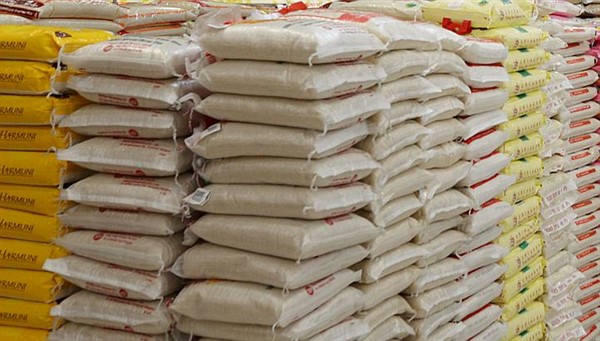Social Media is awash with news of the arrival of 8,000 metric tons of rice at the Queen Elizabeth ii Quay. This is certainly good news for the people of this country since rice is their staple food and any shortage of it can have huge implications, politically, socially and otherwise.
Already there’s talk of the rice being high quality and that it will be sold at reduced affordable price. That is better news for the people, especially the average person who struggles to be high quality rice. There are speculations that a further 140,000 metric tons of rice will be brought in by the same company in the next couple of months. All good for the people and government.
Though a private business man imported this huge quantity of rice which is expected to last about 3 months, the role of government in it cannot be overlooked. In the midst of rising costs of essential commodities and food and fuel shortages fueled by Covid-19 and the Russian invasion of Ukraine, governments have been grappling to meet the demands of their people.

When Covid-19 struck with its attendant consequences biting hard the ordinary Sierra Leonean and some businesses, government crafted an emergency economic recovery program that was intended to maintain macroeconomic and financial stability and to mitigate the impact of pandemic’s shock on businesses and households.
Part of this economic recovery program was to build and maintain an adequate stock level of essential commodities at stable prices by the Bank of Sierra Leone providing Le500 billion support cash to businesses. The policy also includes the provision of a special credit facility at concessional interest rates to support the production, importation and distribution of essential goods and services.
Additionally, the National Revenue Authority is to provide tax deferments to importers and manufacturers of locally consumed goods to the tune of Le300 billion.
As a result of these incentives provided by the government, businesses have kept afloat whilst essential commodities notably rice and fuel have been largely available. This latest importation of 8,000 metric tons of rice cannot be dissociated from this economic recovery policy created by the government of President Julius Maada Bio.
The conducive business atmosphere created for private investors to thrive and flourish is yielding dividend for all sides – the businesses, government and the people. Private businesses like Falcon Global Capital Limited that brought in this latest consignment of rice now have confidence that they have cash available at BSL and the commercial banks at reduced interest rate that can enable them undertake their business ventures with little or no harangue of the past. Government has created the climate for such things to happen so that the people will not run short of basic commodities and we don’t resort to the scene in Sri Lanka where everything ran short and the people had to chase the president out of office.


 Post a comment
Post a comment 








